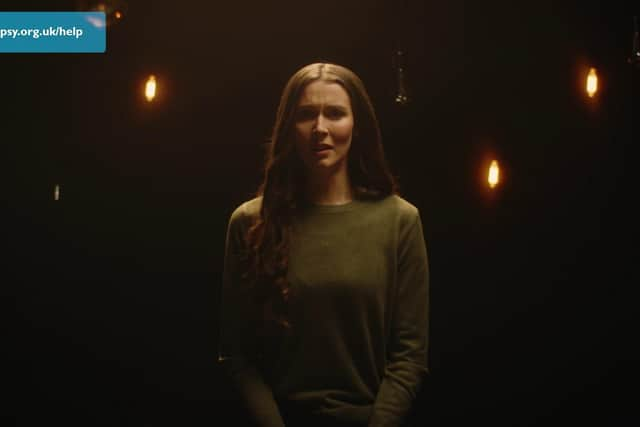How Leeds-based charity is improving lives in National Epilepsy Week - Philip Lee
Imagine you’ve just woken up in A&E, confused and injured. A doctor is explaining that you’ve just had a seizure, but you can’t remember a thing. You have no idea if or when this could happen again.
Fast forward many months, several seizures and tests later, you’re told you have epilepsy. You might be told that you can no longer drive, or do certain jobs, that you shouldn’t be left alone. It feels like your life has changed in an instant, as if someone has turned out the light in the world as you knew it.
Advertisement
Hide AdAdvertisement
Hide Ad

That’s how it can feel to get an epilepsy diagnosis. It can come completely out of the blue, at any age, affecting people from all walks of life. In fact, 87 people are diagnosed every day in the UK, and all too often that news leaves them feeling overwhelmed and in the dark, struggling to find support.
Our new video captures the panic, confusion and isolation people often feel at this pivotal stage.
Epilepsy Action is a national charity based in Leeds. We’re here to improve the lives of everyone affected by epilepsy. This is National Epilepsy Week, a chance for us to shine a light on one of the world’s most common neurological conditions. It affects over 51,000 people across Yorkshire and the Humber.
Seizures are sudden bursts of electrical activity in the brain. They may cause unusual sensations, feelings or movements. They can range from subtle to severe, including tonic-clonic seizures.
Advertisement
Hide AdAdvertisement
Hide AdThese are the seizures most people recognise, where the person loses consciousness and shakes.
But they are not the only type. There are actually around 60 types of seizure and someone could have several kinds. Some people can find the right treatment to control their seizures.
Other people continue having seizures despite trying many types of treatment, which can be devastating. No two people’s epilepsy is the same.
But epilepsy is so much more than seizures. The impact of an epilepsy diagnosis touches many areas of someone’s life. From driving to having a family, education to socialising, everything can feel uncertain.
Advertisement
Hide AdAdvertisement
Hide AdThe fears and assumptions about what epilepsy is, and what it could mean for someone, can compound this. Epilepsy is often an invisible condition and society can be quick to judge what it doesn’t understand.
We talk to many families who struggle with the unpredictable nature of epilepsy. Saima’s daughter Laila is 13 and they live in Huddersfield. Just after Laila’s 11th birthday, she had her first tonic-clonic seizure.
“I know that you’ve got to be strong, but as a mother, seeing that, it was like someone had just pulled my heart out,” says Saima. “I couldn’t help, I was just shouting her name. You’re constantly on watch, you’re constantly scared. You just can’t do things as a family the way you could before.
“I always thought you have a seizure and you get better, but you just don’t. Until you’re walking in those shoes, you can’t understand the day-to-day life. I think epilepsy is a condition that’s just not talked about as much as it should be.”
Advertisement
Hide AdAdvertisement
Hide AdSaima and Laila’s story is not uncommon. But with the right treatment, support and understanding, many people are leading full lives.
Epilepsy can be lonely. But one thing we know for sure is that talking to people going through similar stages and struggles can be a huge relief. That’s where our experts and communities come in.
Here are just some of the ways that Epilepsy Action is supporting people with epilepsy: Helpline and email services. Our experts handle many questions, give tailored advice and signpost to further support.
One caller told us: “When I first called, I was frightened and ill-informed. Your adviser was calm, informative and really listened. Thank you.”
Advertisement
Hide AdAdvertisement
Hide AdTalk and support groups are run by an amazing team of staff and volunteers. They’re a safe space for people to connect. One person told us: “For the first few years after diagnosis I felt so alone. I didn’t meet anyone with epilepsy and I felt like it was just me. But this group has been a new lease of life.”
Online courses to manage wellbeing, as well as training for schools and employers.
Our website, packed with Patient Information Forum (PIF) Tick-accredited information about living with epilepsy.
Our vibrant, supportive social media community, membership scheme and podcast, giving people with epilepsy a voice.
Advertisement
Hide AdAdvertisement
Hide AdAs the cost-of-living crisis bites across the UK, we are campaigning for change so that people with epilepsy are treated equally but also not forgotten. You can join our campaign on our website.
People with epilepsy and their supporters are also doing amazing things for us. They volunteer, they campaign, they donate, they listen, they share their experiences. They tell us what needs to be done.
We depend on our amazing Epilepsy Action fundraisers, too. You could be one of them and run at the Bradford 10k, which returns on September 18 after a three-year break. To sign up, visit our website.
Whatever stage of your journey with epilepsy, or your connection to the condition, Epilepsy Action is here to make sure you don’t go through it alone.
To find out more about epilepsy and support us, go to epilepsy.org.uk / Epilepsy Action Freephone Helpline 0808 800 5050 / Epilepsy Action on Facebook, Twitter and Instagram
